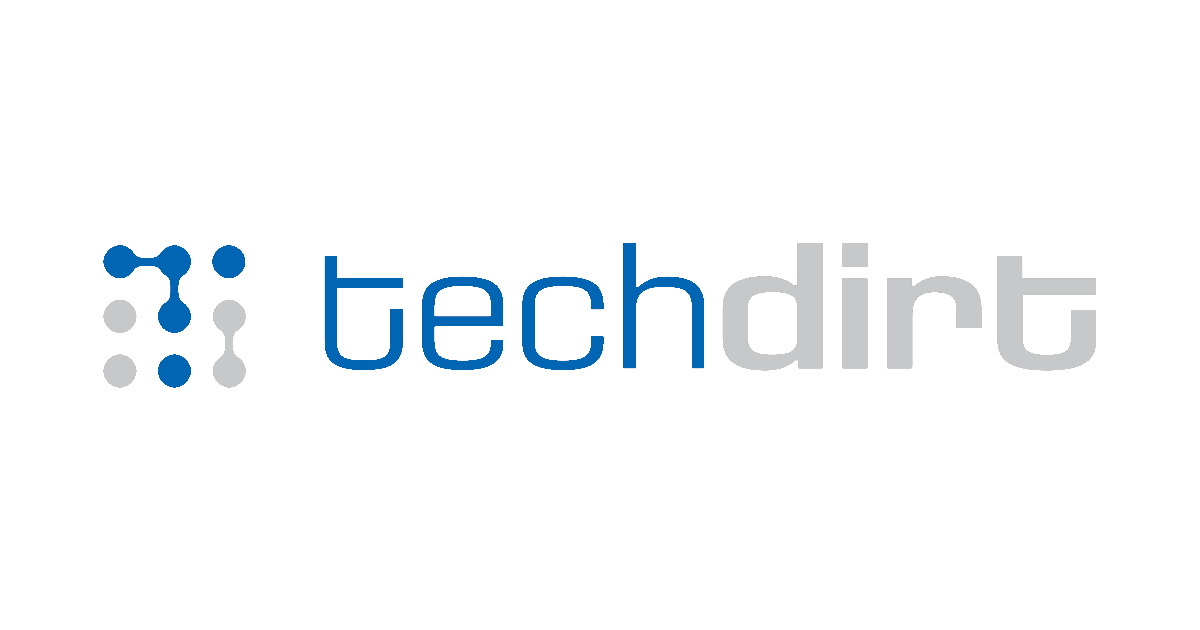YouTube might slow down your videos if you block ads
-
This post did not contain any content.
If you are a content creator please consider upload your content on other video platforms too.
-
This post did not contain any content.
And i stop using youtube when my adblock doesnt work. fuck em
-
I'm trying very, VERY hard to pound the correct knowledge into my brain to be able to switch my freelance business services away from Google to something like Proton Unlimited.
Leaving the Google ecosystem will literally make me lose work, but man, this shit has gotta stop
Depending on which services you want to replace, Nextcloud might also be worth a look. There are quite a few hosted options available by Hetzner and others.
-
You can block ad on tv by side loading smarttube
On LG WebOS, the Homebrew Store has an Ad-free YouTube app that works well too.
-
Yeah, I download whatever I want to watch and fire up vlc. 0 ads, 0 buffering.
Technically that's 100% buffering.
-
Technically that's 100% buffering.
Touché

-
There have been periods where one of my accounts was getting an ad-length black screen with buffering throbber (I hate that name) and, the most recent time, it was accompanied by a pop-up asking me if I'd like to find out why that was happening. Yeah. I know why that's happening, thanks.
Then that stopped happening again. Either they gave up or UBo have worked around it somehow. Never ending arms race.
-
This post did not contain any content.
But I don't have adblockers installed and I still get told to turn my blocker off. I have no extensions and YouTube randomly stops my video to tell me I'm doing it wrong.
Edit: I guess this is the result when dealing with the kind of users who refuse to watch ads, but also can't fuck off like decent human beings. Just millions of people who will climb your fence, pick your locks, smash your window, because they deserve to watch content, but they won't pay or watch ads.
-
For about the last 3 years I've been hearing about YouTube cracking down on ad blockers. Not once has it affected my. Ublock still stops ads on the browser. Revanced stops em on the phone.
FWIW, I've been using ublock origin, too, and it's mostly worked fine.
Until a few days ago, when Youtube started detecting it and showing down the site and telling me I can only watch 3 more videos before it cuts me off. That hasn't happened yet, but I definitely feel the slowdown. I'm hoping a ublock upgrade will fix it soon.
-
This post did not contain any content.
YouTube might just go fuck itself!
-
This post did not contain any content.
Can't slow down videos I've downloaded to my Plex server.


-
If you are a content creator please consider upload your content on other video platforms too.
Idk how one gets content on Nebula, but I wish more creators would join. Ik nebula isn’t Fediverse like PeerTube, but I still really like it and think it’s worth the $30/year to not get ads.
-
But I don't have adblockers installed and I still get told to turn my blocker off. I have no extensions and YouTube randomly stops my video to tell me I'm doing it wrong.
Edit: I guess this is the result when dealing with the kind of users who refuse to watch ads, but also can't fuck off like decent human beings. Just millions of people who will climb your fence, pick your locks, smash your window, because they deserve to watch content, but they won't pay or watch ads.
Umm.... Maybe. Let's take a look.
In the first quarter of 2025, Google's revenue amounted to over 89.52 billion U.S. dollars, up from the 79.97 billion U.S. dollars registered in the same quarter a year prior.
... They'll survive.
I guess the content creators take the hit when users block ads or refuse to use premium.
Edit: your addendum is false. Technically YouTube freely delivers (answers http gets and posts), the user just refuses to watch all of their content or take part in the tracking. No broken windows or climbed fences.
-
It's a tarpit. If they simply displayed a blocked "no vids for u" message, you'd get outraged, go complain online, look for workarounds, and eventually find a bypass. If everything still works but poorly, you get annoyed, turn off your adblocker to troubleshoot, possibly blame the adblocker for being "buggy" and keep it off. Their help page solution implies they are hoping for just that. There is no "smoking gun" blocked message to go complain online about, even though it is indeed their servers that are degrading your connection on purpose in secret. Or maybe you give up and leave their ecosystem entirely, which is no big loss for them.
The proper solution is to develop an adblock that they cannot detect is blocking ads. This may require actually downloading the ad video in background, and then lying that the video has played.
I actually wouldn’t mind that. An ad blocking method that just plays ads in the background with the sound muted and not visible on screen.
If google only lets me stream the content I want when I stream content I don’t want, that’s fine, I just don’t want to watch it as it’s my eye balls, not theirs so it’s my choice at the end of the day
-
I mean, when I want to watch TV or Movies, I load it into my torrent program

 ️ and let it download in the background. I could do the same with youtube videos.
️ and let it download in the background. I could do the same with youtube videos.I had a time, when i had frequent internet disconnections, and connection speed was slow in general, so while i had the internet connection, i just downloaded a bunch of videos, to then watch offline. Suprisingly, downloading video even with slow internet is faster than streaming it, despite when streaming it, videos was always buffering.
Now i have stable internet and i can just stream videos without the problem, even by using third party app with no ads and without account. -
For about the last 3 years I've been hearing about YouTube cracking down on ad blockers. Not once has it affected my. Ublock still stops ads on the browser. Revanced stops em on the phone.
Their attacks are never a global rollout, you somehow dodged them all! Lucky.
-
Umm.... Maybe. Let's take a look.
In the first quarter of 2025, Google's revenue amounted to over 89.52 billion U.S. dollars, up from the 79.97 billion U.S. dollars registered in the same quarter a year prior.
... They'll survive.
I guess the content creators take the hit when users block ads or refuse to use premium.
Edit: your addendum is false. Technically YouTube freely delivers (answers http gets and posts), the user just refuses to watch all of their content or take part in the tracking. No broken windows or climbed fences.
If I thought that way about YouTube, why not just be a sovcit about laws in general? I don't want to cherry pick philosophy. Let's go all in on technicalities and loopholes and definitions and wording. Life is a video game where X leads to Y because that's the rules. YouTube is merely answering requests, and I'm merely watching a curated selection of data. They have a TOS but I never agreed to it. For I'm not a user or customer, but a Netizen, and we have rights.
-
Currently blocking ads consists of keeping uBlock Origin up to date. Not blocking ads generally means going to a different platform after a single ad roll.
I have no issues with pre-roll ads; it’s the interstitial ones that drive me away.
Absolutely the same for me. The only reason I block their ads is because of how frequently they interrupt the content. It’s just unacceptably greedy. Pre-roll ads is fine, I get they have bills to pay too.
-
But I don't have adblockers installed and I still get told to turn my blocker off. I have no extensions and YouTube randomly stops my video to tell me I'm doing it wrong.
Edit: I guess this is the result when dealing with the kind of users who refuse to watch ads, but also can't fuck off like decent human beings. Just millions of people who will climb your fence, pick your locks, smash your window, because they deserve to watch content, but they won't pay or watch ads.
Haha, I would see Youtube go bankrupt before I ever watch a single ad or pay for it. Stay mad. Google is a massive corp, I owe them nothing.
-
The problem is, nothing short of NA and EU governmental intervention will force Google to stop being such a nefarious, monopolistic, antitrust piece of shit. They're just so utterly ubiquitous for Western businesses. You cannot have a small business* and hope to be successful without partaking in either Google or Facebook/Meta's ad services. TikTok was becoming a huge threat to both those companies and look how viciously they were attacked.
The whole thing is beyond fucked, man. Kudos to you for trying to break free for your business, but I feel like you'll just be fucking yourself in the long run.
Edit in advance: I should clarify that there will of course be exceptions where a small business can be successful just fine without advertising, but for those that rely on being discovered on a larger scale versus purely local, it is essential.
Agree with this. For my business, and most customer facing ones honestly, Google is how people discover you. They are the modern day Yellow Pages. You don’t exist on Google and you may as well not exist. It sucks but they have that much of a stranglehold. This is why everyone is shitting themselves over Google using AI (it’s harder/unknown how to game).
-
‘I blame Facebook’: Aaron Sorkin is writing a Social Network sequel for the post-Zuckerberg era
Technology 1
1
-
UK Competition and Markets Authority (CMA) is Cracking Down on Google; Roadmap Include Requiring Choice Screen for Search Providers, Fair Ranking, Publisher Transparency, and Data Portability.
Technology 1
1
-
-
-
-
-
-
California Bill Would Require That AT&T And Comcast Make Broadband Affordable For Poor People
Technology 1
1





